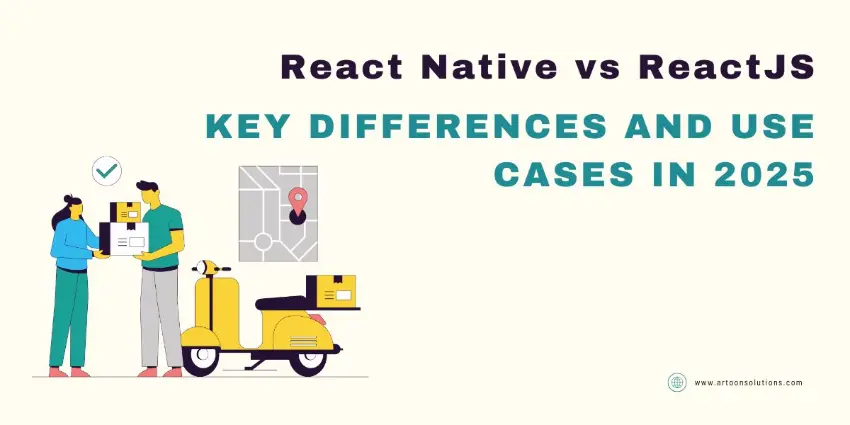As technology continues to evolve, developers are often faced with the decision of choosing between ReactJS and React Native for their web and mobile app development projects. While both are based on the popular React framework developed by Facebook, they serve different purposes and cater to different types of applications. In this article, we will explore the key differences between ReactJS and React Native, their use cases, and help you decide which one to use for your next project in 2025.
What is ReactJS?
ReactJS is a JavaScript library used for building user interfaces (UIs) for single-page applications (SPAs). With its component-based architecture, it allows developers to create reusable UI components that can be rendered efficiently, making it ideal for dynamic and interactive web applications.
ReactJS Development Services are widely sought by companies looking to build responsive and high-performance websites. As of 2025, ReactJS remains a popular choice for building ReactJS websites because of its ability to render content quickly, making it suitable for a wide range of applications, from simple websites to complex single-page applications (SPAs).
What is React Native?
React Native, on the other hand, is a framework that allows developers to build mobile applications for iOS and Android using JavaScript and React. Unlike traditional native development, which requires separate codebases for iOS and Android, React Native enables developers to write a single codebase that works across both platforms.
React Native bridges the gap between mobile app development and web development, allowing companies to reduce development time and costs. It’s an excellent option for businesses looking to create cross-platform mobile applications with the same look and feel on both iOS and Android.
Key Differences Between ReactJS and React Native
Feature | ReactJS | React Native |
|---|---|---|
| Platform | Web applications | Mobile applications (iOS & Android) |
| Rendering | Renders UI in the browser | Renders UI using native components |
| Codebase | JavaScript for web | JavaScript for mobile |
| Performance | Great for interactive websites | High performance for mobile apps |
| Components | Web components (HTML, CSS) | Native mobile components (UI elements) |
| Use Case | Ideal for single-page applications | Ideal for cross-platform mobile apps |
Use Cases of ReactJS
ReactJS shines when it comes to building complex single page applications (SPAs) or ReactJS websites that require dynamic content updates. Whether you’re building an e-commerce platform, a social media website, or a content management system, ReactJS provides the flexibility and speed needed to handle large-scale applications with ease.
Some notable examples of ReactJS websites include:
- Netflix
Use Cases of React Native
React Native is primarily used for building mobile applications. It allows developers to write cross-platform apps with a single codebase, making it a cost-effective solution for businesses aiming to reach both iOS and Android users. React Native is best suited for:
- Social media apps
- E-commerce apps
- Messaging apps
When to Choose ReactJS and React Native?
- ReactJS is the ideal choice if you’re focusing on building a website, especially for single-page applications or complex websites that require fast updates and dynamic content.
- React Native is the way to go if you need to create a mobile application that runs seamlessly on both Android and iOS without the need for separate codebases.
Why Hire Dedicated ReactJS Developers?
If you’re planning to use ReactJS for your next web project, hiring dedicated ReactJS developers can help you ensure a smooth development process. A ReactJS development company can provide the expertise needed to build scalable and high-performing websites or applications tailored to your business needs.
By hiring a dedicated team of experts, you can leverage the full potential of ReactJS and React Native to create modern, responsive, and engaging digital solutions.
Conclusion
In 2025, both ReactJS VS React Native continue to be powerful tools for developers. The choice between the two depends largely on your project needs: ReactJS for web applications and React Native for mobile applications. Whether you are looking to build a dynamic website or a cross-platform mobile app, React technologies offer the flexibility, scalability, and performance you need to succeed.
If you need assistance in building your next ReactJS or React Native application, consider partnering with a professional ReactJS development company or hiring dedicated ReactJS developers for top-notch development services.
